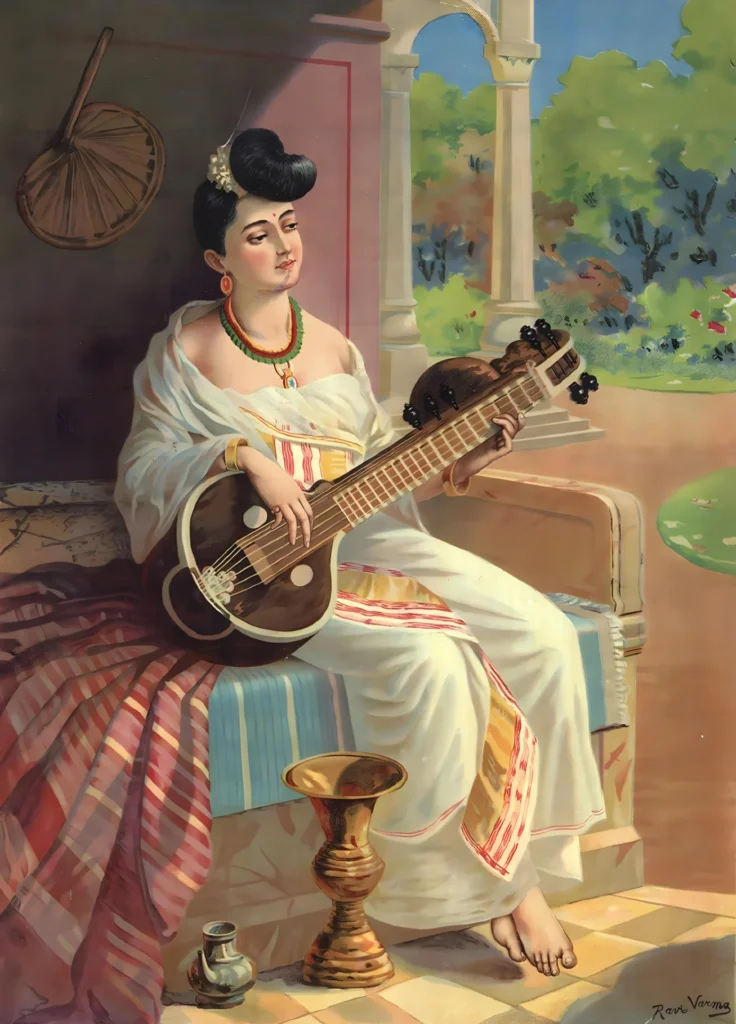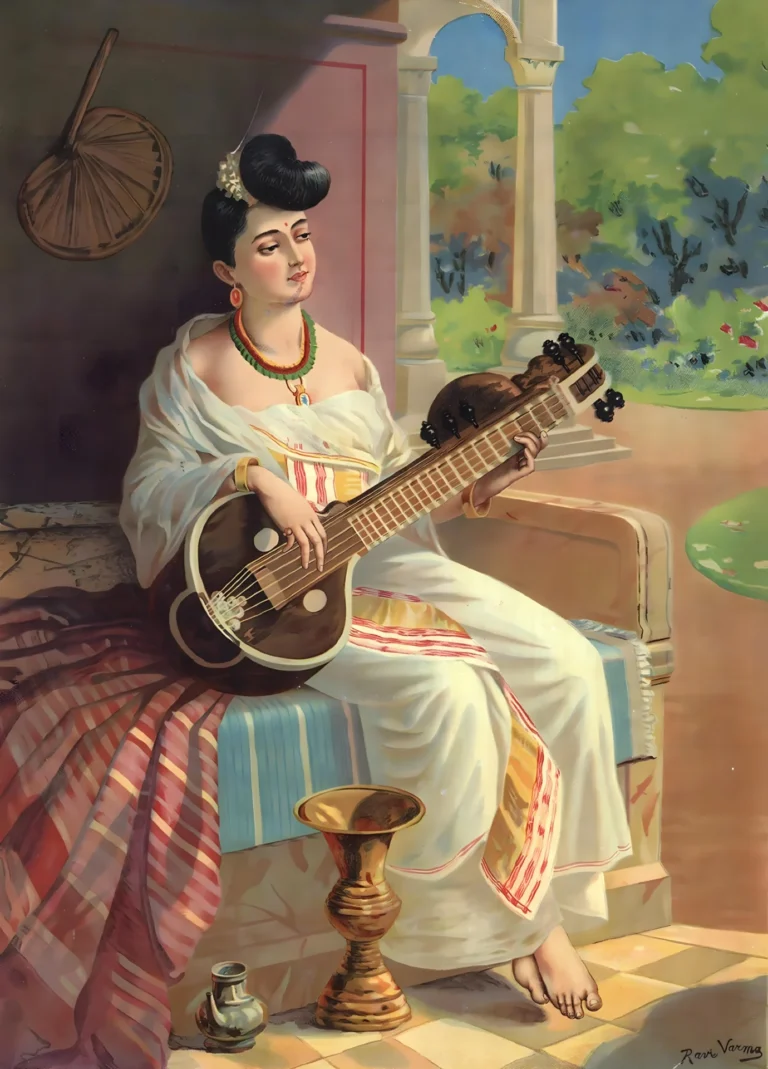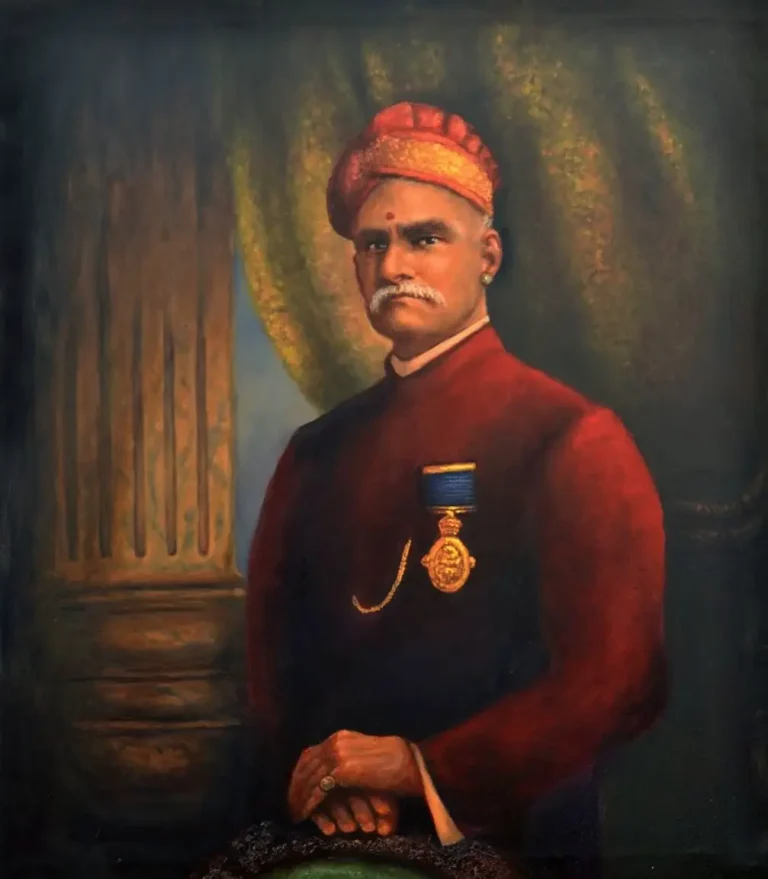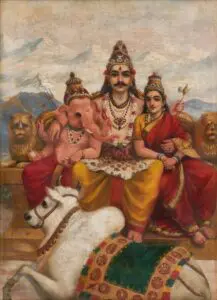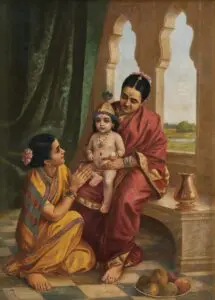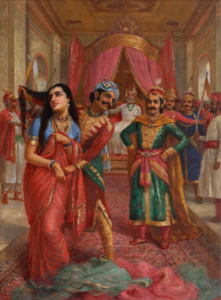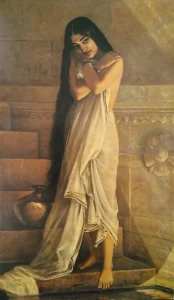Mahananda
Mahananda is a striking painting by Raja Ravi Varma, featuring a Malabar lady elegantly dressed in a white saree known as a 'mundu.' Painted in 1890, this artwork reflects the artist's expertise in merging traditional Indian motifs with European techniques. The subject embodies the grace and beauty characteristic of women from Kerala's Malabar region, making it a significant cultural piece. Varma's work remains influential, highlighting the essence of Indian culture and aesthetics.
Year 1890
About the Artwork
Mahananda is a notable artwork by the renowned Indian painter Raja Ravi Varma, created around 1890. The painting depicts a Malayalee woman dressed in a traditional white saree, known as a Mundu, while she plays the veena, a classical string instrument. The scene is set on a marble terrace, characterized by lush greenery in the background, which reflects the cultural essence of Kerala, Varma's favored setting for many of his works.
Description of Mahananda
- Subject: The painting features a Nair woman in a contemplative mood, engaging with her veena. Her attire includes a Kasavu saree adorned with golden zari work, indicating that it is a festive occasion.
- Setting: The woman is seated on a couch surrounded by opulent rugs, suggesting comfort and elegance. The backdrop includes pillars and greenery, enhancing the serene atmosphere of the scene.
- Mood: The expression of the woman is pensive; her gaze is directed away from the instrument, hinting at deep thoughts or daydreaming. This portrayal captures both the beauty and introspective nature of the subject.
Did You Know
Raja Ravi Varma is celebrated as one of India’s most influential painters, often regarded as the pioneer of modern Indian art. His works blend indigenous themes with Western painting techniques, creating a unique style that resonates with art lovers around the world.
The ‘mundu’ worn by the subject of Mahananda symbolizes traditional Kerala attire, showcasing the cultural heritage of the region. The mundu is a versatile garment that represents modesty and elegance, reflecting the simplicity and grace of Kerala’s women.
Due to the immense popularity of Raja Ravi Varma’s works, high-quality reproductions of Mahananda can be found in homes and galleries throughout India and beyond. These reproductions continue to inspire appreciation for Indian art and culture, echoing Varma’s legacy.




